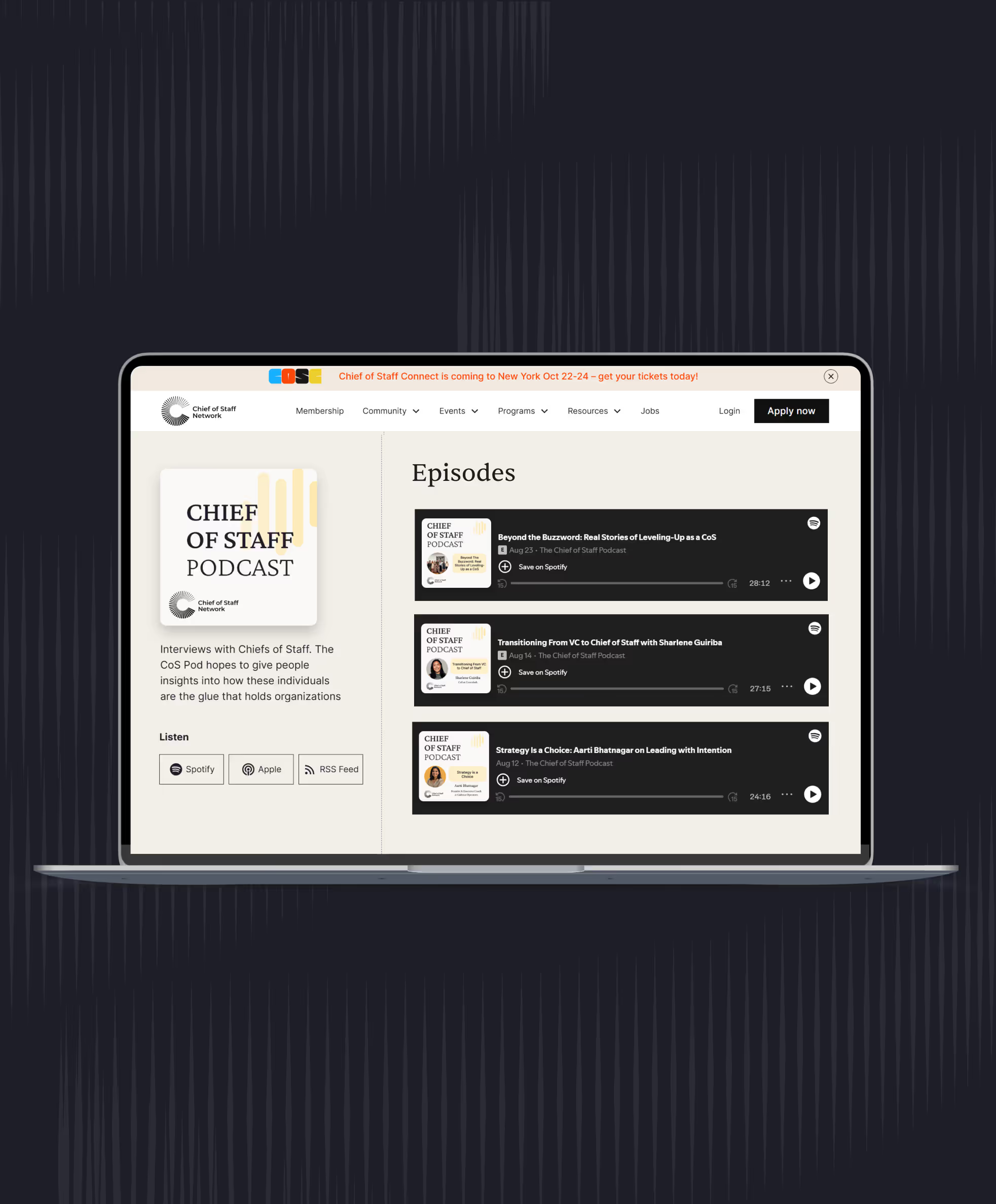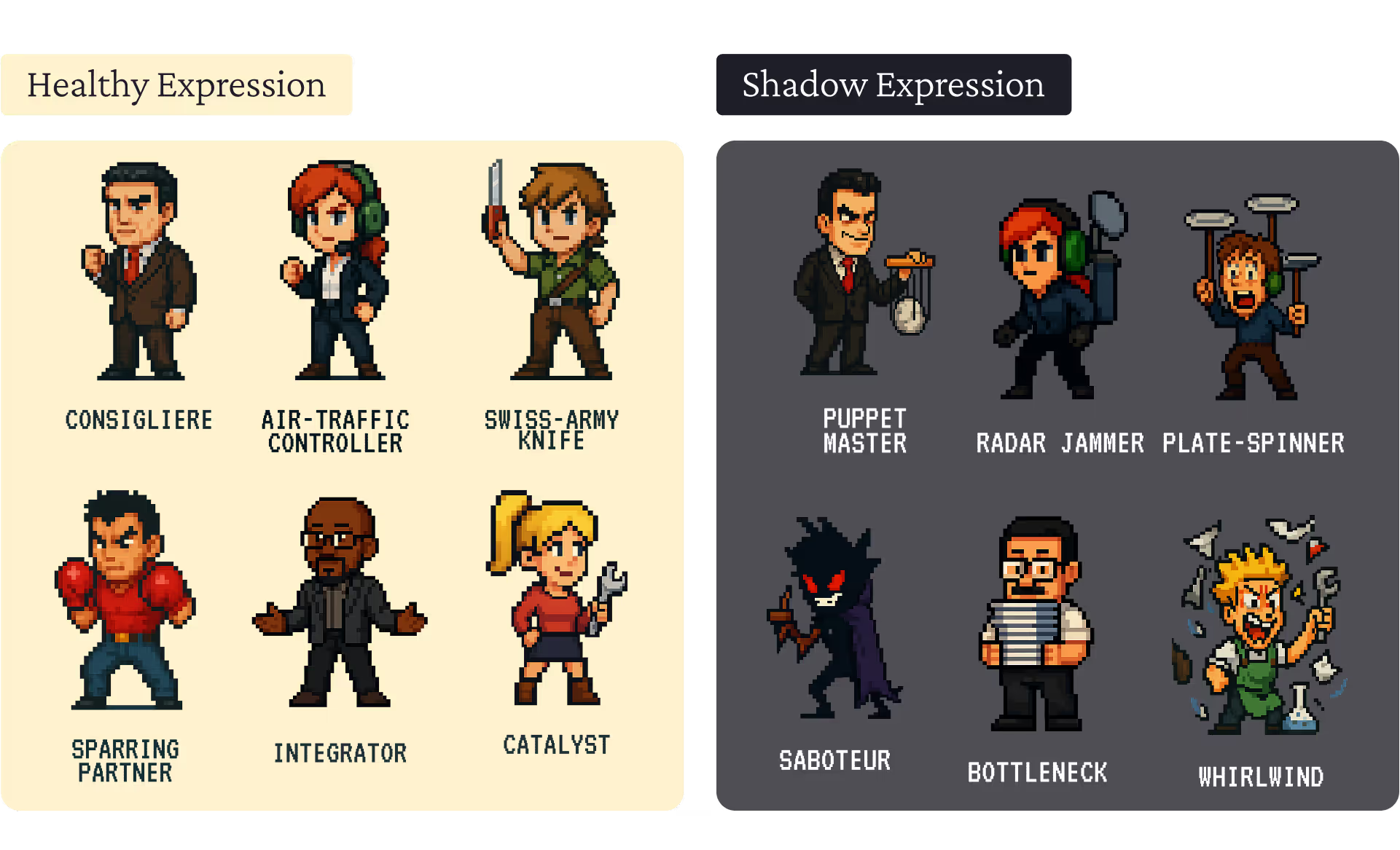Over the last few years, the Chief of Staff role has been gaining increasing prominence. It's a position that often operates behind the scenes, yet plays a pivotal role in ensuring the smooth functioning of a company. To learn from one of the best, we sat down with Emily Smith, Chief of Staff to the CEO at Lattice, and delved into her journey, experiences, and insights.
From her path to the role to her superpower of being a "short-term SME," Emily shares her valuable perspective on what it takes to excel in the Chief of Staff role and how it can become a powerful asset for both executives and organizations.
How did you get into your current role?
Our CEO was interested in experimenting with the Chief of Staff role. I had worked across a couple of different organizations at Lattice and was interested in being in a more project-based and operational role. We both took a bet on each other and the role and it was a match made in heaven.
What has been your biggest learning in your current role?
Being a general business athlete is an asset!
In all of my prior roles, I would struggle with keeping excitement alive for what I was working on. I like to jump from project to project, learn new things, and have a knack for being a subject matter expert in a short amount of time.
Specialized roles struggled to hold my attention so I would jump from department to department. Prior to my role as a Chief of Staff, I had roles in Product Operations, Operations, Program Management, Product, Customer Experience, and Revenue. That past experience working across so many different organizations has given me an advantage in my current role because I have a unique vantage point on how all of the different organizations connect, interact with, and impact each other.
Oftentimes, I think general business athletes view the fact that they have jumped around to different teams as a negative thing; however, as a Chief of Staff, that sort of career path is likely your most valuable asset.
What advice would you give to someone looking for a CoS role?
First and foremost, I would say to go for it!
Secondly, I would tell them to make sure they are excited about the company they’re working for and the executive they are supporting.
To help you do this, it is important to take time to catalog your skillset and look for an executive who needs that skillset to complement their own. This creates a relationship where the CoS can learn new skills from their executive and the executive can lean on their CoS to fill gaps in their day-to-day.
When interviewing, it is important to make clear goals about what you want to learn in a Chief of Staff role and communicate those with the executive early on (even as early as the interview process!) to make sure you both are aligned on what the role is and what is not.
What are you most focused on right now?
I spend most of my time working on launching new products, annual planning, managing our company's operating cadence, and owning internal communications. The amount of time I spend on each of those depends on the time of year and the current needs of the business.
What have been the most challenging and rewarding parts of your CoS experience?
Challenging: Because there are so many interpretations of what this role can be, there can be confusion about what my role is in a project. To be successful, I have found that I have to spend extra time at the start of any project outlining my roles/responsibilities and then getting sign-off from executives and leaders across the org to make sure they understand my scope on the project.
Rewarding: The possibilities in this role are endless! If you have really strong relationships with your executives and their teams and are openly communicative about what you want to bring to the role, there’s no limit to what you can work on. I have had the chance to work on projects in every single organization at Lattice and with so many different employees and leaders. I get to come to work every day and bring my skillset to new challenges and help people, while also learning about all different parts of the business.
What is the oddest task / project you've ever worked on?
Anyone who has worked in finance or revenue recognition will feel my pain, but working on post-implementation Configure, Price, Quote (CPQ) system clean up. I don't think anyone has ever had a clean or easy quoting tool implementation, but the clean-up is even worse. In the long run, it allows for better financial reporting and more streamlined revenue processes, but the path to get there is never fun.
If you could wave a magic wand, with 3 wishes for your role, what would they be?
I am sure that there are plenty of things I would wish for at any given moment depending on what I am working on!
In general, there is one thing that comes up over and over again that I think would make my role infinitely easier. Lattice is currently in a remote-first environment, but I would wish to be in a hybrid or in-person environment. So much of the Chief of Staff role is being the connective tissue across different departments, teams, or leaders and helping people connect the dots. One of the biggest superpowers a CoS can have is to quickly resolve conflicts and see around corners. While this can and does happen in a remote environment, it is really hard to emulate a quick hallway conversation or walk over to someone's desk to quickly ask a question or resolve a challenge. I spend a lot of my time now trying to emulate these "in-person" moments in a remote environment.
I would probably want to save the other two wishes to use in the moment on any of my projects!
What’s something that you’re sneaky good at or that people wouldn’t expect about you?
I think my biggest skill is my ability to become what I call a "short-term SME (subject matter expert)." This means two things:
I am able to really quickly go from knowing nothing about a topic to becoming fairly fluent in it. I think this is because I have taken the time to understand my learning style and am able to harness it to find resources that help me learn very quickly. Conversely, I ignore resources that do not match my learning style.
- I have a bias to action. I am comfortable making fast decisions with less information, especially if it is a Type 2 decision. Even as I am getting up to speed on a new project or topic, I can help people who may be stuck in analysis paralysis or need a fresh set of eyes on a problem come to a decision more quickly. This allows me to move projects or decisions forward at a much faster rate.
What’s the best professional advice that you’ve ever been given?
If you don't know what you want to do, pick a direction and go for it! You can always change your mind later and pick a different direction, but it is a lot easier to run at something and change direction, than it is to not start running at all.
If you’d like to meet Emily and learn more about her experience as the Chief of Staff at Lattice, join the Chief of Staff Network today!





.avif)
.avif)








